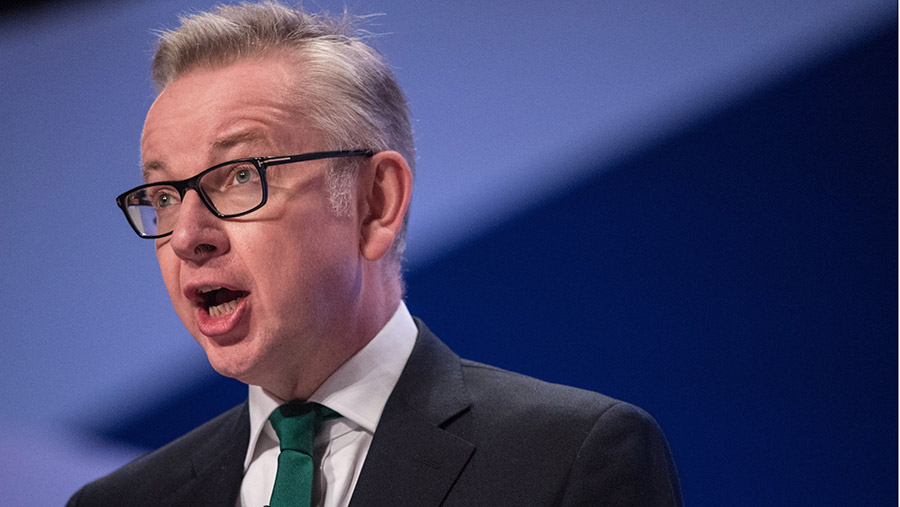Gove promises to slash waste under new food strategy
 © James Gourley/Rex/Shutterstock
© James Gourley/Rex/Shutterstock Defra is planning to launch a new “food strategy for Britain” once the UK has left the European Union, encouraging more sustainable food production and looking to reduce food waste.
Addressing the Conservative Party conference in Birmingham on Monday (1 October), Defra secretary Michael Gove said the emphasis would be on “replenishing the soil, using energy wisely and supporting innovation”.
See also: Agriculture Bill seeks better deal for farmers in supply chain
“We will reform food labelling so that we uphold the highest animal welfare standards and, above all, give consumers the information they need to stay safe,” he added.
But the first step in the food strategy would be to reduce food waste, and to this end he was putting £15m into pilot a new scheme for redistributing food from manufacturing plants and retail outlets.
‘Indefensible’
“Nobody wants to see good food go to waste. It harms our environment, it’s bad for business – and it’s morally indefensible,” he said.
“In the coming months we will work closely with business, charities and volunteers to deliver a new scheme to tackle this problem.”
Defra estimates that 100,000t of edible food – equating to 250 million meals a year – is sent for generating energy from waste, anaerobic digestion or animal feed.
As such, it is commissioning work to understand why more surplus food is not being redistributed.
This work will inform the design of a new scheme, to be piloted in 2019-20, to help drive down food waste.
‘Backbone’
Mr Gove also told the conference he wanted to thank the tens of thousands of British farmers who, he said, represented the “backbone of rural Britain”.
The new Agriculture Bill, which gets its second reading in parliament next week, would help them to be more productive and achieve fairer prices.
“Leaving the EU allows us to act faster and more flexibly to sweep away the barriers that have stood in the way of modernising farming,” he said.
Funds would also be used to give farmers the money they needed to start restoring the beauty of the countryside.
“Over the course of the last 100 years, we have seen that beauty besmirched, nature in retreat and wildlife threatened,” he said.
“We have lost more than half our farmland birds and more than 90% of our wildflower meadows are gone. We have a responsibility to reverse that destruction.”
